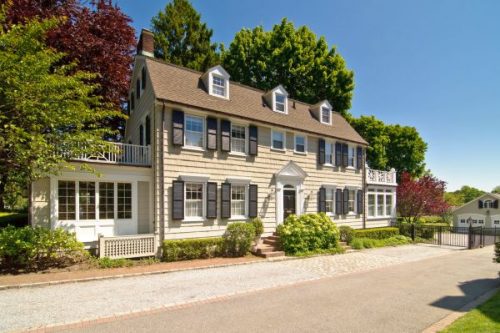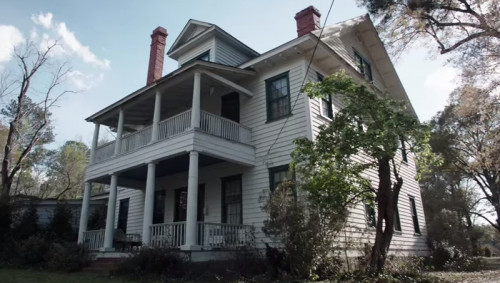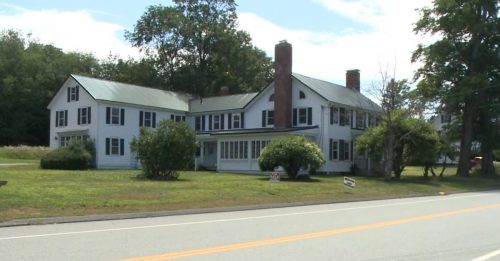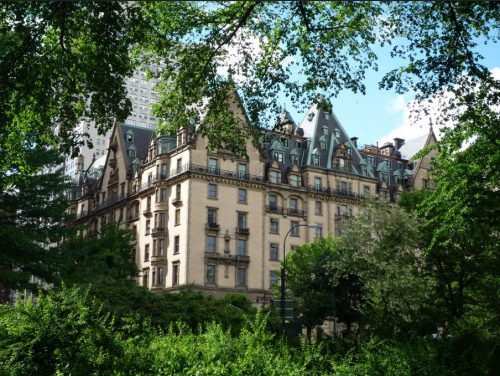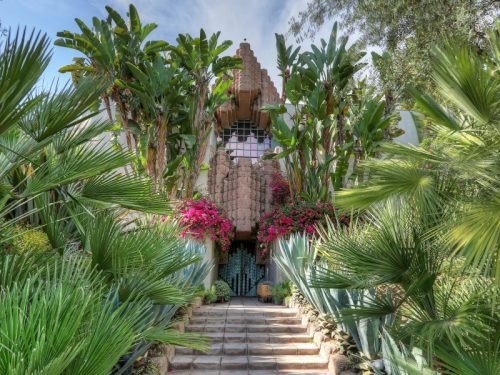America’s premier cities seem to have it all: Instagram-able park and city views, edgy bars, oodles of culture, a vibrant and weird street life, shops that sell cookie dough by the scoop. All that awesomeness comes at a steep price. The harsh reality: Buying or renting in urban meccas like New York, San Francisco or Denver is increasingly out of reach for many folks.
That’s why so many city-centric millennials, empty nesters, and everyone in between are finding themselves in a gut-wrenching double bind: Should they continue to fork over ludicrously high portions of their paycheck for housing, or throw in the towel and decamp to the suburbs?
Why not search out affordable alternatives for urban living—far cheaper cities with many of the same features that made you fall head over heels in the first place? Enter the realtor.com® data team.
We distilled the true character of some of the nation’s most expensive metros to find budget-friendly—and unexpected—counterparts around the country. Think of them as Metro Matchups™—places that link up to the nation’s urban meccas in critical ways, but where you can buy a home for less than $350,000. Less than $350k!
If you’re leaving one of the U.S.’ biggest cities, you’re probably not going to move off the grid to somewhere without a reliable Wi-Fi signal (unless that’s your thing). So we limited our ranking to the 150 largest metros. All have median home prices below $350,000, plenty of gigs, and some ethnic diversity. We factored in housing stock, occupations, weather, nightlife, and a whole host of other criteria that help define an urban center’s unique personality:*
- Percentage of stand-alone, single-family homes, condos, townhouses, and co-ops listed on realtor.com
- Average days of sunshine per year
- Dominant employment sectors (finance, government, tourism)
- Dominant occupations
- Restaurants per capita
- Bars and nightlife venues per capita
- Art galleries per capita
- Number of pro and amateur sports teams
- Car ownership rates
Some of our Metro Matchups pair up as you might expect. Others might make your jaw drop. But hey, we’ve got the data to back it all up! So let’s get going.
San Francisco, Calif.
Median home list price: $868,000
Matchup: Raleigh, N.C.
Median home list price: $339,200
Matching metrics: Tech jobs, tech jobs, and did we mention tech jobs?
Let’s be real: There is only one City by the Bay! But if even thinking about your monthly rent or mortgage bill makes you reach for the anti-anxiety meds, you might want to consider Raleigh.
Hear us out. The metro has the fifth-highest concentration of high-tech jobs in the nation. And the cost of living is just a fraction of that in San Francisco—or any of the other elite urban tech hubs like Boston or Seattle.
Runner-up: New Orleans, La., with its food and nightlife
Los Angeles, Calif.
Median home list price: $699,600
Matchup: Savannah, Ga.
Median home list price: $249,900
Matching metrics: Movie production and beaches
Next time you’re eating butter-doused popcorn at the movies, just remember that film could very well have been made in Savannah. Yep, you heard us right: This is the Hollywood of the South. Savannah ranks No. 3 nationally in actor, producer, and director jobs.
The recent “Baywatch” movie, starring Zac Efron and Dwayne “The Rock” Johnson, was filmed in the Gothic Southern city, as was Robert De Niro’s “Dirty Grandpa.” Please don’t blame Savannah for those! Let’s focus instead on Ben Affleck’s “Live by Night” or Channing Tatum’s “Magic Mike XXL.” Or “Forrest Gump”!
But it wouldn’t be truly Hollywood-esque without a good, old-fashioned celebrity arrest. “Transformers” actor Shia LaBeouf was booked in Savannah for disorderly conduct and public intoxication while on a production break this summer.
The city’s popularity with filmmakers is in part thanks to a tax credit the state began offering in 2008. From 2010 to 2014, filmmakers spent $58 million to produce movies in Savannah, says Trip Tollison, president and CEO of the Savannah Economic Development Authority. They spent $60 million in 2016 alone.
If you plan to relocate, don’t forget to pack your sunscreen. Savannah has some fantastic beaches at Tybee Island.
Runner-up: Las Vegas, Nev., with a star-studded nightlife that never stops
Honolulu, Hawaii
Median home list price: $695,000
Matchup: Myrtle Beach, S.C.
Median home list price: $235,000
Matching metrics: Gorgeous beaches, scads of tourism jobs
Want to escape the high cost of the 50th state but keep your swim trunks handy?
Myrtle Beach was named one of the top 25 favorite beach towns of 2016 by Travel & Leisure and one of the best family beach vacation spots by U.S. News and World Report. It has a beautiful 60-mile string of beaches dotted with hotels, mini golf courses, and boardwalks.
You might miss the luaus, the sublime surfing, and the soy-and-sesame-bathed raw fish in poke bowls, nut you’ll have plenty to do here, and lots more money to do it with. That’s probably why Myrtle Beach welcomed more than 18 million visitors over the summer of 2016.
And if you’re a business owner, you know that vacationers keep the lights on. Myrtle Beach has tons of tourists, with holes burning in their wallets. They’re well-advised to hold on tight to those wallets, as the city is known to have a higher-than-average crime rate. But things are getting better, and the place is growing.
Runner-up: Orlando Fla., with off-the-charts tourism, Disney-style
Denver, Colo.
Median home list price: $499,500
Matchup: Kansas City, Mo.
Median home list price: $245,800
Matching metrics: Hipster scenes and car culture
Kansas City is no longer a stodgy Midwestern metropolis. The city’s downtown has been transformed over the last few years, and now it’s home to about 20 breweries. Heck, Kansas City was even the first market to get Google Fiber’s broadband service in 2012, which gave its small tech sector a turbo boost.
Looking for a hipper-than-thou bar? Head out to the Crossroads neighborhood, where you’ll find the Manifesto, a historic watering hole dating to Prohibition that’s now known for its wildly creative mixology. Or try Swordfish Tom’s, named after singer-songwriter Tom Waits.
Now that you have a few cocktails in you, head over to the First Fridays outdoor event to enjoy street music, sidewalk vendors, food trucks, and art exhibits.
Denver refugees don’t have to give up the great outdoors, either. They can hike the Little Blue Trace Trail at Fleming Park, which runs alongside the Little Blue River.
When you’re packing for the move to Kansas City, just make sure to leave behind any uneaten brownies. (Wink, wink.)
Runner-up: Omaha, Neb., with its numerous jobs in finance
Boston, Mass.
Median home list price: $489,500
Matchup: Philadelphia, Pa.
Median home list price: $249,400
Matching metrics: Historic brownstones, tech and finance gigs galore
We’ve got bad news for Bostonians: It doesn’t matter how many healthy dishes New England Patriots Quarterback Tom Brady prepares from his fancy new cookbook, the man can’t play forever. Don’t worry: You’ll get some brotherly love where you’re going.
So what if Philadelphia doesn’t win the Super Bowl every year? It’s a darned good sports city in its own right. Indeed, the city is sixth in the nation for pro sports championships, four spots behind Boston. Plus, there’s nothing like eating a Philly cheesesteak at a Phillies game.
Built in a similar colonial era, Philadelphia has housing and city architecture that many a Bostonian would appreciate. The Philadelphia cityscape is a mix of Georgian, Greek Revival, and Victorian architecture.
Rest assured, you wouldn’t be the first Bostonian to leave for Philadelphia. Mr. Hundred-Dollar Bill himself Benjamin Franklin did the same almost 300 years ago.
Runner-up: Chicago, Ill., another city that goes gaga over its sports franchises and St. Paddy’s Day parades
Seattle, Wash.
Median home list price: $485,000
Matchup: Minneapolis, Minn.
Median home list price: $311,300
Matching metrics: No shortage of condos, tech jobs, and music legends
Seattle had Kurt Cobain. Minneapolis had Prince. And while these luminaries are gone, their songs live on, just like each city’s music scene.
Live-music aficionados can check out the Soundset Festival in Minneapolis, which draws more than 35,000 fans each year. This year, the event featured performances from Ty Dolla $ign, Travis Scott and Gucci Mane.
And that’s not where the similarities between the cities end. Minneapolis is a bona fide start-up Eden.
Runner-up: Philadelphia, Pa., with its aerospace industry and fondness for damn good coffee
New York, N.Y.
Median home list price: $472,500
Matchup: Chicago, Ill.
Median home list price: $279,700
Matching metrics: Unbeatable nightlife, financial capitals, pizza obsession
You’d think a city with more than 8 million inhabitants crammed into tiny apartments paying astronomical rents might have lots of folks eager to move. But if they did, they’d be giving up so much: Central Park, daily celebrity sightings, 77 Michelin-starred restaurants…also 24-hour subways that keep passengers waiting for ungodly stretches, cat-sized rats, ill-tempered hot dog vendors. OK, maybe there is a reason to leave the Apple. But once you’ve tasted it, where else can you go?
There really is only one more affordable city that could hope to do the city justice: Chicago.
Even the most stubborn New Yorker might be won over by Chitown. The Chicago skyline is gorgeous, with Willis Tower doing a fine Empire State Building impression. Once a laggard in the foodie department, it’s now home to some of the best America has to offer. They’re just cheaper. And yes, the city also has its own public transportation system. (Sorry, it, too, tends to keep you waiting.)
The two cities are also known for their mob roots. New York had the Five Families. Chicago had the Chicago Outfit and Al Capone. You decide if this is a good thing.
Runner-up: Baltimore, Md., a port city with lots of condos
Portland, Ore.
Median home list price: $450,000
Matchup: Columbus, Ohio
Median home list price: $241,300
Matchup metrics: Hipster havens
The warning signs were there: man buns, artisanal pickle shops, and rooftop bars. So the Buckeye State shouldn’t be too surprised that hipsters have invaded their state capital. Yep, Columbus has even fallen for avocado toast.
Nearly 20 craft breweries have opened in Columbus over the past five years. Want a taste? Attend the Columbus Ale Trail, where you’ll try suds from the 37 total breweries located in the city.
Runner-up: Madison, Wis., a college town with a funky food and nightlife scene
Washington, D.C.
Median home list price: $429,500
Matchup: Trenton, N.J.
Median home list price: $290,000
Matchup metrics: Government jobs rule the roost
On a weekend walk through the nation’s capital, you’ll see the Washington Monument and the Lincoln Memorial. They’re beautiful. But are they worth the high price tag you’ll pay each month in rent or for your mortgage? Hey, it’s not easy on many government salaries!
That’s why folks may want to consider Trenton. We know it’s a stretch. But the city has government and nonprofit jobs to spare: Nearly one in three jobs here is in the government sector. It may not have D.C.’s museums or a “House of Cards” power scene, but does the nation’s capital have an annual Pork Roll Festival? (We honestly don’t know.)
Keep in mind it’s only 26 minutes to Philadelphia, about an hour from New York…and if you get really homesick, two hours from D.C. on Amtrak.
Runner-up: Tallahassee, Fla., an even more unlikely government-driven economy
Miami, Fla.
Median home list price: $387,500
Matchup: Phoenix, Ariz.
Median home list price: $317,200
Matchup metric: Sunshine and baby boomers baking in it
Hurricanes are becoming more frequent—and the cost of flood insurance isn’t going down, so maybe you’re a little less adamant about keeping your beachfront abode. If that’s the case, give Phoenix a look.
Despite lots of development, Phoenix still has some reasonably priced cribs. And nearby Scottsdale has grown its tourism in recent years and is trying to market itself as a party-seekers’ destination.
Another perk? Phoenix has much lower humidity. Hair problems solved.
Runner-up: Virginia Beach, Va., with its oceanside fun
*Data sources: realtor.com, Bureau of Labor Statistics, Census Bureau, National Oceanic and Atmospheric Administration, Nielsen, Google Trends, Yelp.com
A version of this article originally appeared on realtor.com®.
For the latest real estate news and trends, bookmark RISMedia.com.
The post Kindred Cities: Affordable Alternatives to Your Favorite Pricey Places appeared first on RISMedia.


